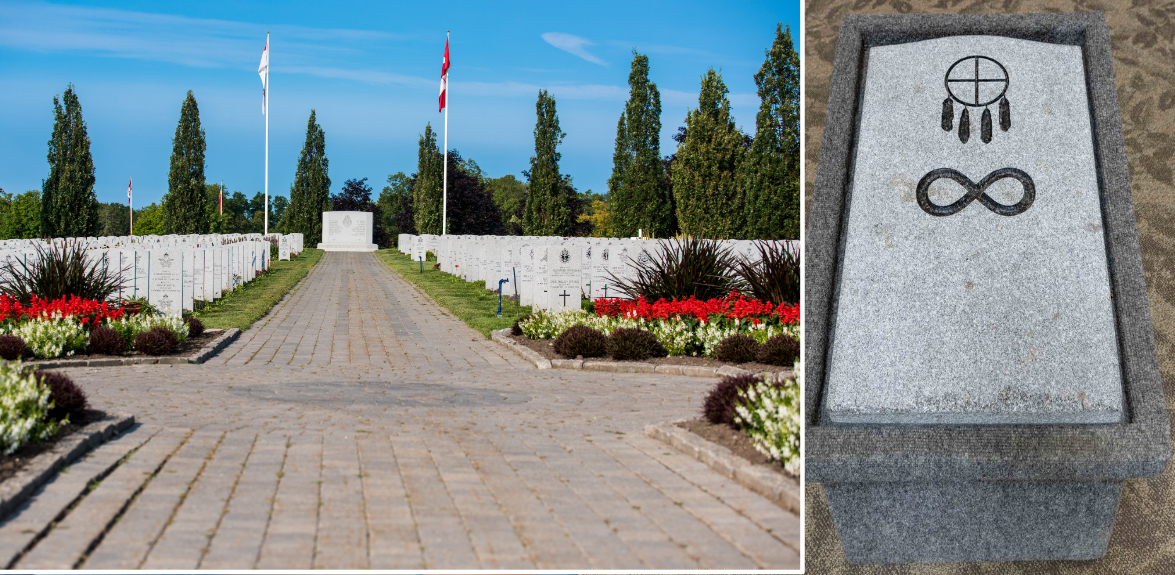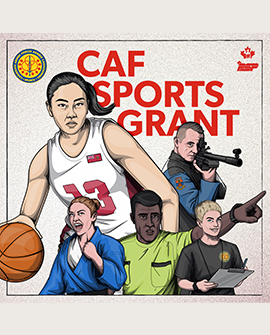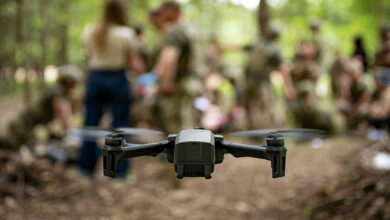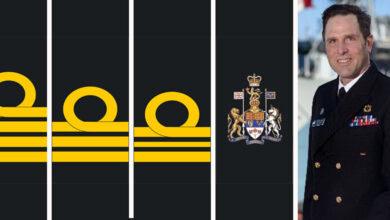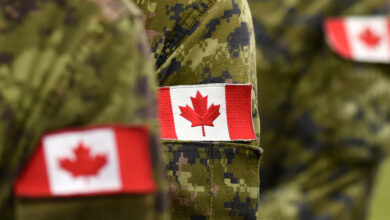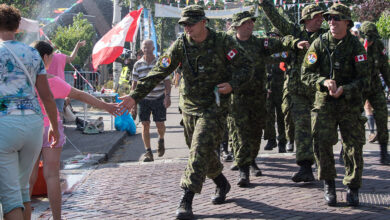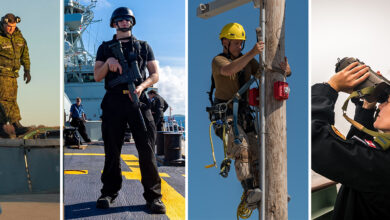Policy
Indigenous symbols for gravestones at National Military Cemetery unveiled
In an effort to incorporate and recognize Indigenous people serving in the military, two symbols representing Indigenous spirituality for military headstones were unveiled earlier this month.
The two symbols include the First Nations Medicine Wheel and the Métis Infinity symbol. The symbols were revealed on June 21 during a “solemn” ceremony at the National Military Cemetery (NMC) at Beechwood Cemetery in Ottawa.
According to the Canadian Armed Forces (CAF), this is the first time in the National Military Cemetery (NMC) history that Indigenous spirituality symbols are officially approved to be engraved on military headstones.
“The inclusion of the Indigenous spirituality symbols for military headstones is another important step toward reconciliation. Every step, every effort, and every change is meaningful and contributes to the larger journey of reconciliation between the Government of Canada and Indigenous Peoples. Changes like this one allow the greater Defence Team community to acknowledge the Indigenous communities’ rich history and embrace the unique qualities that Indigenous Canadian Armed Forces members have to offer,” said Anita Anand, Minister of National Defence.
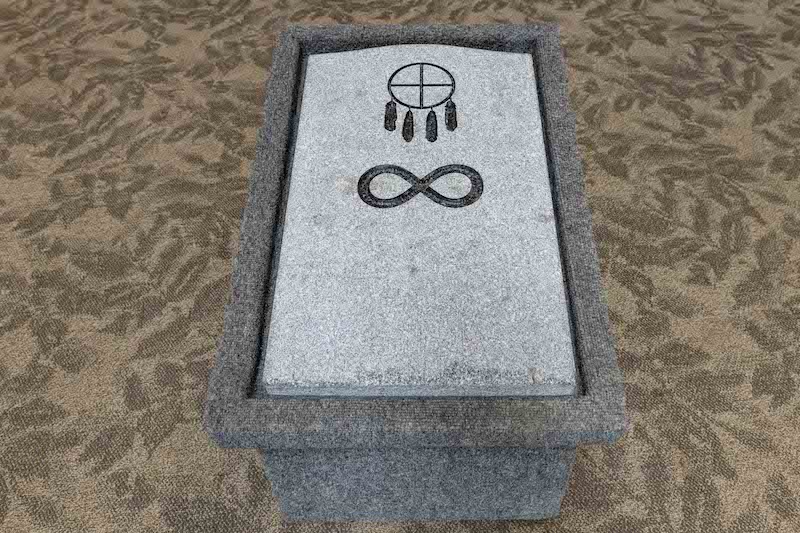
The Creation of the Symbols
In the spring of last year, the National Military Cemetery acknowledged the need to personalize the final resting place of Indigenous CAF members and Veterans to represent their spirituality better. According to a Department of National Defence press release, a consultation process was launched that included talks with Elders and Indigenous groups.
Indigenous CAF members and veterans can now also request that their Indigenous name also be engraved on their headstone at the NMC.
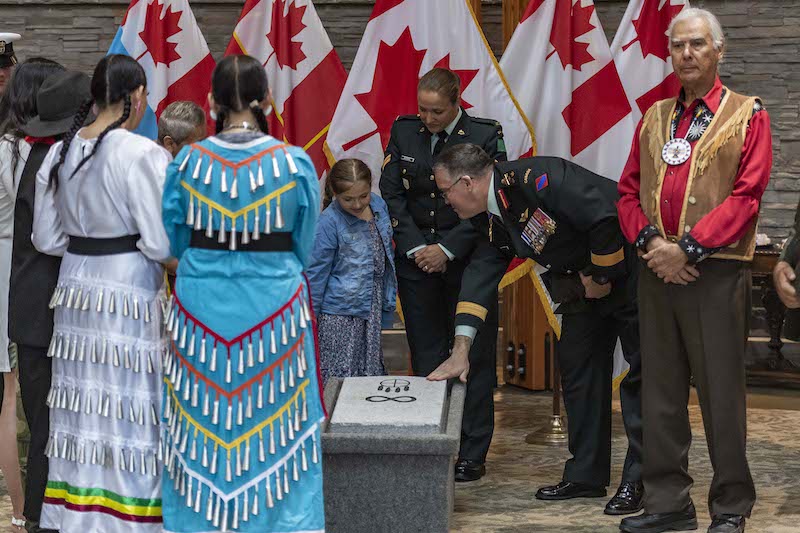
Defence Team Champion of Indigenous People
The symbols were revealed by the Commander of the Canadian Army and Defence Team Champion for Indigenous Peoples, LGen. Jocelyn Paul.
“As Defence Team Champion of Indigenous Peoples, the unveiling of the First Nations Medicine Wheel and the Métis Infinity symbol marking Indigenous Spirituality is an important step on our journey to reconciliation, where unique customs and traditions of Indigenous Peoples are respected and honoured. This inclusive change embraces the distinct qualities of Indigenous Canadian Armed Forces members and allows for an authentic and personalized expression of beliefs,” said LGen. Jocelyn Paul, Commander of the Canadian Army and Defence Team Champion for Indigenous Peoples.
The ceremony was also attended by BGen. Dyrald Cross, Commander of Canadian Armed Forces Transition Group, and Capt. (N) Bonita Mason, Chief of Staff to the Canadian Armed Forces Chaplain General.
“Spirituality and resiliency go hand in hand for many Canadian Armed Forces members. All members have the right to practice their ancestral cultural and spiritual practices while serving Canada alongside their colleagues in the profession of arms. We are very honoured and grateful for the dedicated work of everyone who was involved in the consultation and selection process for the First Nations and Métis symbols,” said Capt. (N) Mason.
There are currently consultations underway to determine the most appropriate symbols for the Inuit as they view spirituality and grief is different than that of First Nations and Métis.
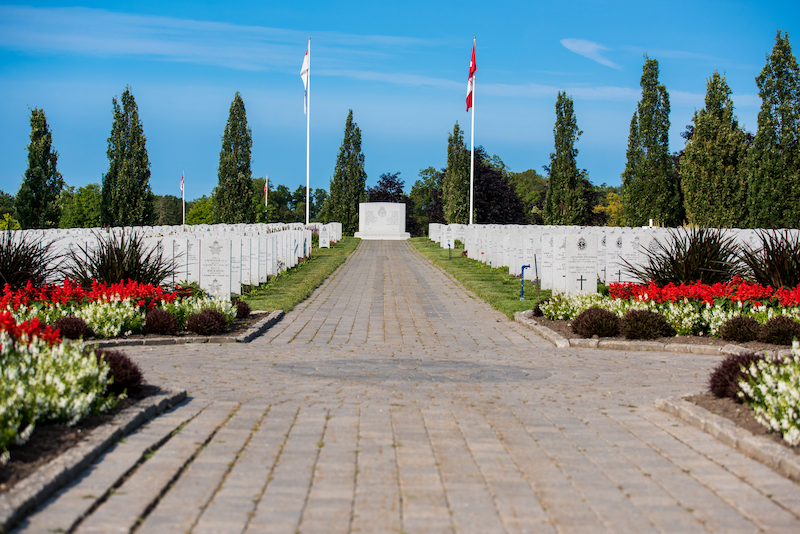
National Military Cemetery
The NMC was founded in 2001. It is a final resting place for CAF members and veterans who did not die in service-related incidents but chose to rest among their peers.
There are eleven religious and spiritual symbols approved for engraving on military headstones at the NMC:
-
- Christianity (Cross),
- Judaism (Star of David),
- Islam (Crescent Moon),
- Buddhism (Wheel of righteousness),
- Hinduism (Om or Aum),
- Bahai (Nine Pointed Star),
- Sikhism (Khanda),
- Taoism (Yin-Yang),
- Wicca (Pentagram),
- Métis (Infinity Symbol) and
- First Nations (Medicine Wheel).
The NMC is part of Beechwood Cemetery in the National Capital Region. It is managed in partnership by the Department of National Defence through the CAF Transition Group, Veterans Affairs Canada, and Beechwood Cemetery.


